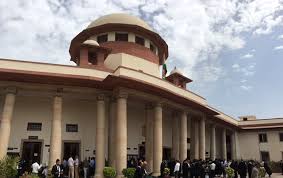Broadly, the issues arising are whether there is any right to invoke the MFN clause when the third country with which India has entered into a Double Tax Avoidance Agreement (hereafter ‘DTAA’) was not an OECD member yet (at the time of entering into such DTAA); and secondly whether the MFN clause is to be given effect to automatically or if it is to only come into effect after a notification is issued. (Para 1)
In the light of the above discussion, it is held and declared that: (a)A notification under Section 90(1) is necessary and a mandatory condition for a court, authority, or tribunal to give effect to a DTAA, or any protocol changing its terms or conditions, which has the effect of altering the existing provisions of law. (b)The fact that a stipulation in a DTAA or a Protocol with one nation, requires same treatment in respect to a matter covered by its terms, subsequent to its being entered into when another nation (which is member of a multilateral organization such as OECD), is given better treatment, does not automatically lead to integration of such term extending the same benefit in regard to a matter covered in the DTAA of the first nation, which entered into DTAA with India. In such event, the terms of the earlier DTAA require to be amended through a separate notification under Section 90. (c) The interpretation of the expression “is” has present signification. Therefore, for a party to claim benefit of a “same treatment” clause, based on entry of DTAA between India and another state which is member of OECD, the relevant date is entering into treaty with India, and not a later date, when, after entering into DTAA with India, such country becomes an OECD member, in terms of India’s practice. (Para 88)
SUPREME COURT OF INDIA
2023 STPL(Web) 360 SC
[2023 INSC 928]
Assessing Officer Circle (International Taxation) 2(2)(2) New Delhi Vs. M/S Nestle Sa
Civil Appeal No(S). 1420 Of 2023 With Civil Appeal No. 1423/2023, Civil Appeal No. 1421-1422/2023, Civil Appeal No. 1424/2023, Civil Appeal No. 1425/2018, Civil Appeal No. 1426/2023, Civil Appeal No. 1427/2023, Civil Appeal No. 1428/2023, Civil Appeal No. 1429/2023, Civil Appeal No. 1430/2023, Civil Appeal No. 1431/2023, Civil Appeal No. 1432/2023-Decided on 19-10-2023
https://stpllaw.in/wp-content/uploads/2023/10/2023-STPLWeb-360-SC.pdf







